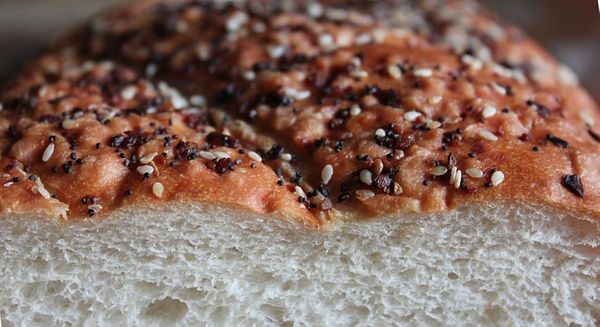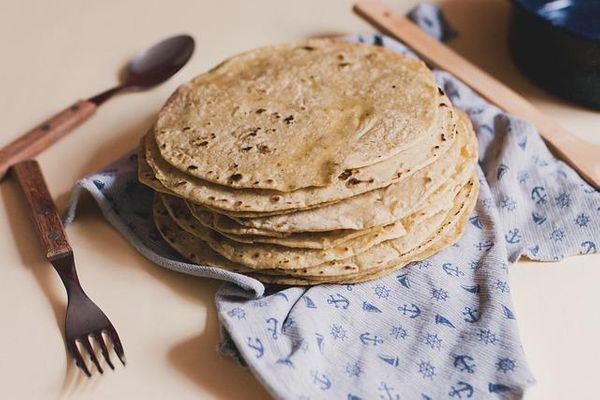The world is changing and so are eating habits. People today care about what they eat so that they can monitor their body by consuming foods that are only full of nutrition, and shun anything that isn’t. In the process, few things are generically labeled unhealthy and often looked like something that can be bad for all. One such thing is salt and the other thing is gluten. Haven’t we all heard about going gluten-free diet? A health trend that most health and fitness enthusiasts seem to follow for a decade now.
Now, you must have wondered, what is gluten? Why is it bad and is it really so bad that one has to skip it from the meal altogether? After all, the way gluten-free products are promoted and advertised, gluten seems to be an evil guy. Come let’s check out the facts and truth surrounding gluten and gluten-free products.
So, what is Gluten?
A complex mixture of hundreds of related but distinct proteins (prolamins) is collectively known as gluten or gliadin. It is the key storage protein of wheat. A similar storage protein called avenin is found in oats, hordein is found in barley, and secalin is found in rye. Together they are all gluten. (Source)

Now that gluten protein is highly elastic these grains are usually used for making baked goods including bread. Sometimes extra gluten in the powdered form is used to increase the strength and shelf life of the baked products.
Is Gluten Really Bad for your Health?
Well, it is resistant to protease enzyme that plays an important role in breaking down proteins in your digestive tract. So, in a way, they are resistant to human digestion.
Besides, there is something called as Gluten-Intolerance that invites three types of conditions – Wheat Allergy, Celiac Disease (inflammatory auto-immune disease), and Non-Celiac Gluten Sensitivity (NCGS).
While Celiac disease is found in 1% of the world’s population and is known to hurt the small intestine, wheat allergy causes difficulty in breathing and NCGS can show symptoms of fatigue, headache, and joint pain post consuming gluten. (Source)
So, if you are having any one of the above three conditions, you are gluten-intolerant and gluten should be avoided for health reasons. However, if you do not have any of the three conditions, it isn’t bad for your health despite many from the health and wellness world suggesting that intolerant or not one should go for a g-free diet.

Also Read: Salt is Necessary and Healthy: Know the Side Effects of Low Salt Diet
Is G-Free Diet Safe?
According to research gluten-free diets (GFD) are quite effective in reducing symptoms of certain conditions and few experts have theories that they can be effective in reducing symptoms of certain diseases as well –
Auto-Immune Disease – There are several theories that state how gluten can worsen certain conditions including type 1 diabetes, rheumatoid arthritis, Grave’s disease, and Hashimoto’s thyroiditis. Research shows that autoimmune disease shows a common pathway and shares common genes with celiac disease.
IBS and IBD – A study reveals a bi-directional relationship between irritable bowel syndrome and self-reported NCGS – non-celiac gluten sensitivity. (Source) Moreover, it has been seen that they increase intestinal permeability and gut bacteria in people with IBS and IBD.
Also, research shows that a GFD can benefit people with conditions such as schizophrenia, endometriosis, and fibromyalgia.

So, for such people, a GFD is healthier. However, people who do not have a non-celiac disease and if they consume a gluten-free diet might invite several health issues including deficiency of fiber and micronutrients, increase in fat content of foods, hyperglycemia, hyperlipidemia, and coronary artery disease. (Source). However, if one opts for a GFD ensure that it is replaced by nutritious food.
Generally, gluten-containing grains contain nutrients such as fiber, iron, potassium, zinc, and B vitamins that can be replaced by consuming a whole-food-based diet consisting of healthy fats, fruits, vegetables, and nutritious protein sources.
Besides, the fact remains that just because a product is gluten-free doesn’t necessarily mean it is healthy. Also, it is still debated whether the GFD is beneficial to those who are tolerant.
The End Note
Now that you know what is gluten, gluten intolerance, and gluten-free diet along with its relation to the human body, you know that is a necessity for some but for others, it is a matter of choice and preference. In addition, the relationship between gluten and overall health is still undergoing studies and research.
Want to know whether you are gluten intolerant? Well, there’s no apparent test yet but you can skip it for a while and see if you feel better or not.
Also Read: What is the Difference Between Ayurvedic and Organic Products?
The Foods that Contain Gluten are
Grains – whole wheat, barley, rye, wheat germ, cracked wheat, wheat bran
Processed Grain-based products – bread, pasta, cookies, pastries, wheat-based noodles, bread crumbs,
Other foods and beverages – soy sauce, barley malt, beer, processed meats, chips, certain salad dressings, and certain kinds of liquor and wine.





